

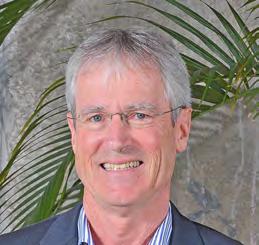














UseyourNZcalls,text,anddataatnoextracost inAussie.Notavailableifyouhaverelocatedto Aussie.ExclusionsapplyincludingInternational ChatPack.Tollcallrates,FairUsePolicyand T&Csapply. Seewhatoursmartbusiness
The founder of Katikati medicinal cannabis company Eqalis is confident his company will remain viable despite its new owner Cannasouth Limited going into voluntary administration.
> By RICHARD RENNIE
Greg Misson was one of the founders and funders of Eqalis in 2020, developing the intellectual property on economic, high-volume extraction of cannabinoids for the production of medicinal cannabis products.
Last year Eqalis merged with another medicinal cannabis company, NZX listed Cannasouth Limited.
In late March Cannasouth went into voluntary administration as it burnt through the last of its shareholders’ cash and projected cash returns continued to remain elusive.
In early April its CEO Mark Lucas also resigned. This follows
on the heels of its chief financial officer Colin Foster.
Misson remains a shareholder in Cannasouth. He said he was confident the administrators Blacklock Rose are bringing some corporate discipline to the operation to ensure it can continue its operations.
On merging, Eqalis bought its IP and full indoor growing facilities in Katikati to the venture, aimed at matching this to Cannasouth’s expertise in plant drying and processing.
Eqalis bought the processes that helped bring down the cost of extracting and processing cannabinoids in the plant, enabling them to be marketed at a lower price, something that has been a barrier to patient uptake.





The merger also bought Cannasouth closer to being a vertically integrated processor with Eqalis’s pharmaceutically certified Katikati growing and extraction facility.
It also provided additional cash reserves, but these ran short with forecast operating cashflow by the end of this year coming too late with noteholders owed $2.9 million by the company.
The IP included a DNA test that could profile a patient to determine their susceptibility to developing psychosis on taking cannabinoid medicines. This is a known response among a percentage of patients when administered such treatments for muscle spasticity and glaucoma.
Misson was also a found-
ing shareholder in Open Country Cheese, the disruptor dairy company that entered the dairy farmer supply scene 20 years ago, breaking Fonterra’s grip on milk supply sector.
Of Cannasouth, he said the company was down “but definitely not out” and he believed the administrators were doing a good job of creating a leaner, agile Cannasouth as a result.
In a statement to the NZX, the administrators said they were undertaking a detailed review of Cannasouth’s operations focusing on identifying profitable lines of the company’s products.
They will then be seeking financial support from shareholders and note holders to implement the plan.

CannasouthshareholderandEqalis founderGregMissonisconfidentthe companywillcomeoutofvoluntary administrationonabetterfooting.





INFORMATION
PUBLISHER
Alan Neben, Ph: 021 733 536
Email: alan@bopbusinessnews.co.nz
EDITORIAL
Alan Neben, Ph: 021 733 536
Email: editor@bopbusinessnews.co.nz
PRODUCTION – Copy/Proofs/Graphic Design
Times House Publishing – Clare McGillivray
Email: clare@timeshousepublishing.co.nz
ADVERTISING
Pete Wales, Mob: 022 495 9248
Email: pete@bopbusinessnews.co.nz
ELECTRONIC FORWARDING
EDITORIAL
News releases/Photos/Letters: editor@bopbusinessnews.co.nz
GENERAL ENQUIRIES
info@bopbusinessnews.co.nz
Bay of Plenty Business News has a circulation of 8000, distributed throughout Bay of Plenty between Waihi and Opotiki including Rotorua and Taupo, and to a subscription base.
Bay of Plenty Business Publications
309/424 Maunganui Rd, Mt Maunganui, 3116
Bay of Plenty Business Publications specialises in business publishing, advertising, design, print and electronic media services.
www.bopbusinessnews.co.nz
In case you missed last month’s edition


> By DAVID PORTER
The recent media coverage of the tit-for-tat missile exchanges between Israel and Iran inadvertently resulted in a significant change in the global perception of the Gaza War being underplayed.
Global media outlets have trained their reporting on whether or when Israel would respond to Iran’s attack on Israel. Iran’s attack was itself retaliation for the completely unprecedented attack on Iran’s consulate in Libya.
But the real news was that the coverage resulted in the downplaying of the recent decision by McDonald’s to buy back its 30-year-old Israel franchise from local franchisee Alonyal.
The reason? McDonald’s has been subject to boycotts and protests. McDonald’s CEO Chris Kempczinski said previously the company had seen “meaningful business impact” in several markets in the Middle East due to
the Israel-Hamas conflict. In February, Kempczinski was reported as saying the Gaza War had had a “disheartening” effect on sales in Middle Eastern countries and other Muslim-majority nations.
“So long as this conflict, this war, is going on … we’re not expecting to see any significant improvement in this,” Kempczinski reportedly said in a conference call.
Meanwhile Israeli Prime Minister Benjamin Netanyahu is reportedly plunging to the lowest polls in his political history, with a majority of respondents calling for early elections.
The local protests come from relatives of the hostages taken on Oct 7 and still held by Hamas, who are outraged that Netanyahu’s war policy has had no effect on securing their release. They have also been joined by thousands of other Israelis concerned at the direction Netanyahu’s war is taking the country.
Netanyahu’s most nota-
ble response? He recently pushed through a bill that would allow him to take Quatar-based news network Al Jazeera off the air waves in Israel.
According to a recent report prepared by the Committee to Protect Journalists, as of April 21, 2024, preliminary investigations showed at least 97 journalists and media workers were among the more than 34,000 killed since the war began on October 7.
Their total included more than 33,000 civilian deaths in Gaza and the West Bank and 1,200 deaths in Israel. This is believed to be the deadliest period for journalists since CPJ began gathering data in 1992.
However, as best we can tell, Al Jazeera is not widely watched within Israel.

What Netanyahu is likely to be far more anxious to suppress is the fact that Al Jazeera reporters are broadcasting a realistic and up to date picture of the enormous and senseless destruction the Israeli military is wreaking upon its captive colony.
Let us recall that Israel has long banned the entry of foreign reporters into the Gazan war zone. Those journalists who report from the area – at enormous personal risk – are local Palestinian reporters. And as a result of their reports there has been a discernible change in the reporting by other foreign news networks on the Gaza War. They are no longer willing to blindly accept as fact the statements of Israel and its main ally the US.
Sadly, US President Joe Biden is attempting to win a presidential election at a time when he is seen as enabling an ally who is very publicly ignoring his allegedly “stern” words urging restraint.

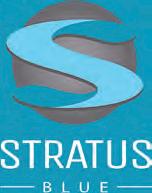
One of the Bay of Plenty’s best-known businessmen and benefactors Sir Paul Adams KNZM has been awarded the University of Waikato’s first Honorary Doctorate.
> By DAVID PORTER
Sir Paul Adams, a distinguished figure in New Zealand’s development landscape, well-known through his Carrus Construction business, was conferred the Honorary Doctorate at a ceremony held at the Tauranga campus in April
Sir Paul said he was delighted.
“I was humbled and honoured to be the first recipient of an Honorary Doctorate Degree conferred at Tauranga Campus, University of Waikato,” he told the Bay of Plenty Business News.
An Honorary Doctorate is the University’s most prestigious honour. University of Waikato Vice-Chancellor Professor Neil Quigley said it was in recognition of Sir Paul’s substantial and ongoing contributions to the
University, the Bay of Plenty and beyond.
“Sir Paul’s commitment to the University has been transformative,” said Quigley. “His leadership has been instrumental in the establishment of the University’s Tauranga campus and the Adams Centre for High Performance in Mount Maunganui.”
He serves on the University Foundation Board and has served as a University Council member and Chair of the Campus Development Committee.
With a career spanning 50 years, Sir Paul is considered by the UOW to have been instrumental in shaping the commercial and residential sectors, fostering joint-venture partnerships and spearheading numerous building projects that have significantly shaped the region’s infrastructure.
Sir Paul said the Tauranga campus was poised to grow and was an integral part of the future of the CBD of Tauranga City, as city amenities continued to develop and be revitalised.
“If the University of Waikato is given the go-ahead for a new regional medical school, it will also provide a real opportunity for undergraduate degrees in Tauranga that will become a pathway to a medical degree,” he added.
Born in Wellington, his career began as an engineering cadet before venturing into civil construction then establishing his own consultancy practice.
Sir Paul was an early investor in the Bay of Plenty kiwifruit industry. He became the leader of the largest kiwifruit operation in New Zealand with nearly 50 orchards across the Western Bay


SirPaulAdamsreceiveshisHonorary Doctorate from the UOW’s Chancellor SirAnandSatyanand.Photo/SuppliedUOW
of Plenty, as well as six post-harvest packing and cool store facilities by 1990.
In 1988, Sir Paul collaborated with the Tauranga District Council to develop and implement a regional growth strategy.
Carrus Corporation played a key role in creating residential subdivisions across major locations in New Zealand. His philanthropic endeavors have supported organisations such as Waipuna Hospice, Women’s Refuge, and Riding for the Disabled as well as the UOW.
Sir Paul is also a life member of Priority One, Tauranga’s economic development agency. He was also the founding chair of Accessible Properties, and IHC
Company, the largest non-Government social housing provider in New Zealand.
Sir Paul was a board member at the Correspondence School Te Kura and a Founding Trustee of Tauranga Boys’ College. The historic Mayfield House was donated by Sir Paul and his wife, Lady Cheryl, to the school in 1995.
Sir Paul was voted the 2013 Westpac Business Leader of the Year in the Bay of Plenty and received the Companion and subsequent elevation to Knight Companion of the New Zealand Order of Merit in 2015 and 2019. In 2023, he was inducted into the New Zealand Business Hall of Fame.
> Frompage1
Classic Kinect, a provider of transportable homes in the North Island, recently successfully relocated a cabin from a private farm in Maketu to the picturesque island of Motiti. This historic move marks a significant achievement for Classic Kinect.
The relocation process, orchestrated by Classic Kinect and the Kàhu NZ Helicopter Lifting Services teams, involved the use of a Black Hawk helicopter to lift the cabin from the mainland and transport it across the sea to Motiti Island.
The entire operation was captured on film by a second helicop-

ter, adding to the excitement and documenting this remarkable event for posterity.
“This endeavour presented an exciting opportunity for Classic Kinect to fulfil our customer’s

wishes and deliver their cabin to its new island destination,” said Aaron McGarva, General Manager of Classic Kinect.
“For us, it’s always about customer care. Seeing the joy on
our customer’s face as they witnessed the Black Hawk helicopter delivering their home was truly rewarding.”
Classic Kinect, a division of Classic Builders, has built a reputation for excellence in the transportable homes industry.
From cabins spanning 50 square meters to spacious 150 square meter homes, the company offers a diverse range of options to suit various needs. In addition to the homes, Classic Kinect constructs worker accommodation, classrooms, rural business premises, and holiday baches, providing versatile solutions for modern requirements.
As part of the larger Classic
Group, Classic Kinect benefits from the collective expertise and resources of an integrated development company.
Founded in the Bay of Plenty, Classic Builders has grown to become one of the largest residential building companies in the country, with a presence extending from Queenstown and Canterbury to Wellington, Waikato, Auckland, and Northland.
“We are proud to be part of the Classic Group, which encompasses a diverse range of services across the construction sector,” added McGarva. “Together, we are dedicated to driving positive change and shaping the future of housing in New Zealand.”
> By ANNE TOLLEY, TAURANGA COMMISSION CHAIR
When the Tauranga City Council Commission was appointed to a new term in 2022, one of the responsibilities we were tasked with by the then-Minister of Local Government was to develop a plan for a smooth transition back to democratic governance arrangements.
That’s something the commissioners have given considerable thought to over the intervening months, because to safeguard residents’ interests, we need to try and reduce any possibility of a return to the dysfunctionality and poor decision-making of past elected councils.
As always, the responsibility for electing an effective governance team lies with the community – that’s what democracy is all about – but we have tried to make that an easier process by encouraging people from a wide variety of backgrounds to stand
for election.
The information sessions we have held for prospective candidates have given us some confidence that voters will have a strong selection of candidates to choose from. Around 100 people attended the first of these events and while not all of them will be putting their names forward for election, that level of interest is very encouraging.
The Council has run a publicity campaign asking people who think they can contribute to the good governance of the city to consider standing and we’ll also be looking to encourage all eligible electors to vote.
The latter aspect is actually hugely important. In recent local elections throughout New Zealand, the voter turnout has been disappointing, with 40% or less of eligible electors actually casting a vote. Local democracy actually
makes more decisions that affect our everyday lives than national government does, so it’s really important that people vote and that they put the right mix of elected members in place to guide their city’s future.
Information about standing for election, voter registration and voting can be found on the Council website and we encourage all eligible voters to get involved and ensure that they have their say on who represents them.
Likewise, we want people who are committed to the future of the city and have the right gover-

nance skills, community awareness and knowledge base to put themselves forward for election.
Over the past three years, the city has taken some important steps forward, particularly in the work now underway to address our housing shortage and infrastructure deficit and revitalise the city centre.
We now have a comprehensive 2024-34 long-term plan in place for the new Council to work with and progress. The Commission also made a recommendation to the Minister of Local Government, Hon. Simeon Brown,
that a Crown Observer be put in place to support the new governance team and keep the Government informed of its progress. However, he has indicated that he does not wish to make that appointment at this time.
Of course, the business community has much at stake as well, because a thriving economy will benefit everyone and help make Tauranga the city we all want –a great place to live, work, learn and play, not just for us, but for future generations as well. Make sure you play your part in making that happen.

Let’s take a step back for a minute ... I was watching a film called the Vault the other night in which a team of salvage experts (you’ll need to watch the movie to understand what I mean) try to break into one of the world’s most impregnable banks in Madrid – and being a boring CEO of an IT company, it got me thinking about data and data storage.
Stick with me on this ... Imagine you are given a bag of the finest diamonds, or a bucket full of gold bars. What would you do to keep them safe – to protect them from the thieves or opportunists who might want to relieve you of your precious riches?
My guess is you would stick them in the most secure facility you could find and afford and, just to make sure you were completely de-risked (because “spoiler alert”
even the most impregnable facilities can be breached), you would insure it so you could recoup any financial losses if the unthinkable happened.
In today’s digital economy, the data you hold is more valuable than a bag of diamonds, a bucket of gold or a painting by a grandmaster.
Your data is the raw material that fuels insights, innovation, and growth for your business. It can be collected and refined so you can identify valuable patterns and trends to drive your decision making and strategy more effectively. Data can be monetised. Companies sell access to their data, create data-driven products, and leverage it for targeted advertising. The more accurate and relevant the data, the greater its worth.
What fuels the gargantuan revenues of many of today’s giant

MIKE BELL
global corporations? Data. What allows geopolitical powers and shady organisations to ‘allegedly’ influence elections? Data. Alongside power and water, what allows the awesome power of AI algorithms to work? Data. What drives the multitrillion dollar global cybercrime industry (currently estimated to be worth $8
trillion USD, with the World Economic Forum predicting that the cost of cybercrime will be a whopping $23.84 trillion USD by 2027)? Data. Should I go on?
So, if data is so important and valuable, why do so many people and businesses take the, ‘it won’t happen to me’ approach and leave it vulnerable to theft and opportunist attack? They leave it with minimal or no protection, with no back-up plan, and no insurance in place to recoup financial losses if the worst was to happen.
Don’t think that because you run a small business, or because we are tucked away here in Aotearoa New Zealand, that your data is not as valuable as that of a large global corporation – because it most definitely is.
Did you know that according to the 2023 Kaseya MSP Benchmark Survey Report, since 2020 SMB’s
have experienced a 350% increase in Ransomware attacks; and that 80% of all cyber-attacks targeted the SMB market?
So, I ask you again. Do you know the value of the data that you hold? The precious information that is the lifeblood of your business and has been entrusted to you by your customers and employees.
Is it secure in the digital equivalent of the most secure financial facility in Madrid, or have you left the door wide open for an opportunist thief to steal it away, along with your reputation and quite probably, your business? If you’ve not done enough to secure your data, please do something now.
Mike Bell is the CEO at Stratus Blue. He can be contacted at mike@stratusblue.co.nz
Under the ‘Lexus Electrified’ vision, Lexus aims to invigorate all owners’ authentic love for driving exhilaration, and in doing so, broaden its Lexus Electrified portfolio of hybrid electric vehicles (HEV), battery electric vehicles (BEV), and plug-in hybrid electric vehicles (PHEV) to exceed the needs and expectations of a more diverse set of luxury buyers.
The new electrified Lexus RZ is our future of electrification and will continue to accelerate our carbon reduction journey. From the brave design through to the exhilarating performance it will be a delight to drive.
The Lexus RZ 450e is the halo model of this new approach – a new design, sleek, sharp lines and an aerodynamic silhouette express the vehicle’s athletic personality. While the side profile of the RZ is unmistakably Lexus, the RZ front and rear feature a new Lexus Electrified look, with sleek lines and sharply angled lights.
Lexus of Tauranga is offering a unique proposition on this innovative luxury model.
The “We Love Zero’s” campaign is championed by the Zero % finance offer with a $25000 deposit, and the balance over 36 months. There are a number of funding options available, including business leasing, and combined with that, an $8000 travel or furniture voucher, 10,000kms of road user charges, and to top it off, our Lexus of Tauranga Lifestyle Package which offers the new owner the use of an RX350H Hybrid six times a year over a four day period for those journeys when EV recharging poses a challenge.
All new Lexus models come with a four-year unlimited kms full maintenance service plan, and a four-year unlimited kms warranty with Lexus Roadside Assistance. This package represents significant value with its

funding flexibility and add on value proposition.
Driven by electricity and featuring new safety technology, the Lexus RZ stays true to the Lexus brand concepts of brave design, omotenashi and takumi craftsmanship.
The exterior design expresses the seamless acceleration and dynamic torque-filled performance specific to BEVs. Lexus’ identifiable spindle grille is replaced by a BEV Spindle Body. The new front bumper design focuses on aerodynamic efficiencies, optimised proportions, and style, versus serving the cooling and exhaust needs of an inter-
nal combustion engine. This styling evolution ushers in a new Lexus aesthetic and establishes a new design direction for BEV offerings.
The “Lexus Driving Signature” is a uniquely Lexus driving experience that aims to achieve predictable, linear response according to the driver’s intentions. In the RZ, the high-precision motor torque control and optimal battery and motor placement help to achieve ideal weight distribution and high response.
This concept is based on the DIRECT4 all-wheel drive system that controls front and rear drive force according to driving
and road surface conditions. It achieves driving performance where the vehicle directly responds according to the driver’s input.
DIRECT4 and the newly developed high-output electronic axle (eAxle) motor continuously controls the drive force of the four wheels with high precision. It works according to the ground contact load of the vehicle regardless of road surface and driving conditions to achieve an exhilarating driving experience in line with the driver’s intention.
For more information or simply to have a closer look, call us today 07 577 0880 at Lexus of Tauranga, 158 Elizabeth St, Tauranga. www.lexusoftauranga.co.nz
*T&Cs-FamilyLifestylePackageZerocostwhichincludesuseofaRX350HybridLimited 6timesperyearforextendedfamilytripsforthetermofwarranty.FinanceT&C’sRRPof $151,600,ORCof$1550.Min$25,000deposit,36monthterm.FlexibleFinanceplans availableincludingHirePurchase,FinanceLease,GuaranteedFutureValueCertificate Finance.$9.20PPSRProcessingfeeapplies.LexusFinanceNormalLendingcriteriaapplies tofinanceapplicants.$8,000TravelVoucher(HouseofTravel)orFurnitureVoucher (Greenslades).Zerocostonfirst10,000kmRUCsfrompurchase.Tradein’sacceptable.



Employees and business owners are reaching breaking point after being pushed to perform miracles under increasing time, capacity and financial pressures. Could the secret answer to solving the pressure-puzzle come not from avoiding stressful situations, but from embracing them?
I’ve been lost and stranded in the middle of the Sahara Desert. Drug dealers held a gun to my head and pulled the trigger. I broke a Guinness World Record with seconds to spare. A Great White Shark swam up to me and smiled. I’ve run across the coldest and deadliest place on the planet. I’ve even attempted to drive from Omokoroa to the Mount in under 45 minutes on a Monday morning.
So it’s fair to say I’m qualified to write about performing under pressure. And while weighed down under the stresses of modern life, I’ve developed an unpopular opinion: Almost everything you know about working under pressure is wrong.
What’s worse, is that your attempts to ‘reduce’ the pressure you and your team are under are actually leading to burnouts, stress-outs and breakdowns.
But while the rest of the business world is struggling to ‘perform’, there is a way for you to actually ‘profit’ and even ‘prosper’ under pressure.
It’s time to discover why the puzzle of being put under pressure might be solved by getting over it.
The workplace is under more pressure than ever before. Budgets are being slashed, teams are being stretched, leaders are being scrutinised and customers are being more frugal. As a result,
we experience the crushing pressures of not enough time, money, attention or breathing space to create the lives we desire.
This increasing weight of pressure negatively impacts our health, performance, decision-making ability, creativity, sleep and relationships. So far, not a pretty picture.
I’m unlikely to win a Nobel prize for telling you that pressure leads to burndown and breakdown. I’ve experienced this personally, both inside and outside of the workplace, and the research backs it up. In fact, a recent study showed that 87% of employees felt their ability to perform at work was inhibited by the amount of pressure they were under.
So, what does any responsible business owner do? They try to reduce the pressure their teams experience. And this is their first big mistake.
There is nothing so dangerously indestructible as an idea once it has been planted inside a person’s mind. A few years ago, a notion was created, seeded, and inserted into the brains of millions of professionals. What was this concept that was neurologically absorbed?
Pressure is bad.
As a result, business leaders and HR directors scrambled to do anything they could to turn down the flames simmering under the
corporate pressure cooker: Wellness apps were commissioned; DiSC profiles were thrown around like green, red and yellow frisbees; Wacky team workshops with enough props to fill an S&M convention were booked; Lunchtime yoga sessions were scheduled.
But there was a problem: People still felt under more pressure than ever before. Absences continued to rise, employee engagement continued to fall, burnout kept burning, and capacity kept falling.
This is when the second mistake was made.
Leaders felt they had only two options: Keep paying out for the wacky workshops and wellbeing schemes that clearly weren’t working, or push their people to work harder through increasing waves of pressure.
No wonder it feels like so many businesses – and careers –are slowly drowning. So it’s time to stop fighting the current.
The war against pressure at work cannot be won. Trying to reduce pressure is about as fruitless as trying to reduce gravity, trying to control the sunrise, or trying to convince Gucci to open their new flagship store on Devonport Road.
It isn’t going to happen. So for how long are we going to pretend otherwise?
Like it or not, we are a people under pressure. We encounter
pressure from the moment we look at our phones, to the second our child announces they left their shoes at school; from the moment we log onto our laptops, to when we get asked, “What’s for dinner?”
Scrap the Myers Briggs assessment, because in 2024 everyone has a profile that reads: ‘WTAF’.
Rather than wasting time, money and energy fighting the forest fire of pressure, it’s time we learned to cook on the flames instead.
Pressure is like fire. If handled incorrectly (as most businesses do) then it leads to burnout. But if handled correctly, you can ignite talent rocket fuel.
Keeping employees protected and as far away from pressure as possible is a sweet idea, but it means they become like a ‘pressure pavlova’ – they crumble upon exposure to a little heat.
But if you want to create a workforce full of diamonds, then pressure will need to be applied.
Obviously, this isn’t about pushing people to breaking point: I know personally what it feels like when you have to pick up the pieces of your own demise. But a little pressure doesn’t lead to Burnout … it creates ‘BurnON’.
BurnON happens when you create the conditions that allow your team to fire their boosters and soar to a new level. Like any endeavour to reach new heights,

there will be challenges, risks and you won’t be able to 100% guarantee that progress will be perfect… …but that is what happens when you want to break ceilings and put careers into orbit.
And this is where I challenge you. Because I believe you do your teams and colleagues a disservice: You try to remove the pressure because you’re afraid they will crumble and fall.
But what if you turned up the heat a little, gave them their wings and they flew like a glider soaring above Mount Maunganui? What if you gave them an opportunity to prove what heights they are capable of reaching?
Life at the corporate coalface is tough, and we can’t change that. But with the right support – and the right kind of pressure – your team can still shine like diamonds.
Freddie Bennett is a Guinness World Record holder, bestselling author and leads New Zealand’s leading mastermind group for professionals: Professional Superheroes. He gets businesses unstuck, unshackled and unleashed. Freddie can be contacted at hello@freddiembennett.com



It is well known that SMEs can struggle to find the capital to protect their intellectual property rights.1 This is particularly the case for small or start-up enterprises which face Capex demands from every corner of their business.
The importance of protecting their IP rights is also well known, however. So, confronted with a funding shortfall, where can SME’s turn for capital help?
In New Zealand, there are a range of grants and funds available from, for example, Callaghan Innovation,2 but these are either not suitable for SMEs who are just looking for some extra capital to protect their IP rights or they require SMEs to jump through significant hoops to even have a chance of obtaining funding. SMEs must therefore turn to other funding sources such as FFF,3 private equity funds, angel investors, third party lenders or crowdfunding for any capital they need for protecting their IP rights.
While there is obviously nothing wrong in seeking funding from such quarters, what if there
was an another, simpler source of funding potentially available?
In the European Union, there is such a source for SMEs established in the EU: The Ideas Powered for business SME Fund, from the European Union Intellectual Property Office (EUIPO). A brief introduction to the SME Fund is as follows.
The SME Fund is a grant scheme specifically designed to help EU-based SMEs protect their registrable IP rights. SMEs are defined4 as “enterprises which employ fewer than 250 persons and which have an annual turnover not exceeding EUR 50 million, and/or an annual balance sheet total not exceeding EUR 43 million”.
Grants are awarded in the form of vouchers that the beneficiary can use to claim a reimbursement.5
The SME Fund offers four different vouchers that can be used to claim reimbursement for various IP-related activities: these include applications for trade marks, designs, patents, and plant varieties, and IP Scan6 services.
The trade mark and designs

BY BEN CAIN
voucher has a maximum value of €1000 (NZ$1800); the patents voucher a maximum value of €3500 (NZ$6300), the plant variety voucher a maximum value of €1500 (NZ$2700) and the IP Scan voucher a maximum value of €1350 (NZ$2430).
Depending on an applicant’s country or region, an applicant could save as much as 75% on IP right applications and 90% on an IP Scan.7
Applications for grants, which are completed online in no time at all, can be submitted by a business owner, employee or an authorised external representative acting on their behalf such as an IP lawyer, patent or trade mark attorney.
Once an application is
approved, SMEs will receive their grant award and vouchers within 15 working days. SMEs must ‘activate’ the vouchers by requesting reimbursement (using the appropriate form) within two months (extensions of up to a further two months are possible), after they have paid for the relevant services.8 Reimbursement is made directly into SMEs’ bank accounts.
Speaking purely for myself, I think the SME Fund is a brilliant scheme.

It might be that if such a scheme was implemented in New Zealand, the definition of ‘SMEs’ would need to change so as not to bankrupt the country or result in grants to MEs that really shouldn’t need them; even with such changes, though, a scheme would unquestionably be of significant benefit to New Zealand SMEs’ registered IP asset base and the New Zealand economy.
If any members of the current coalition government in New Zealand (including Mr Rutherford and Mr Uffindell) are reading this article, then, to them I say – how about it?
Ben Cain is a Senior Associate at James & Wells. He can be contacted at 07 928 4470 (Tauranga), 07 957 5660 (Hamilton), and ben.cain@jamesandwells.com
1. Once those rights have been identified. 2. See https://www.callaghaninnovation.govt.nz/products/fund/ 3. Friends, Family and Fools. 4. https://eur-lex.europa.eu/legal-content/EN/TXT/?uri=CELEX:32003H0361 5. https://www.euipo.europa.eu/en/ discover-ip/sme-fund
6. IP Scan is an “IP pre-diagnostic” service whose aim is to provide SME’s with guidance on how to register and capitalise on their IP: see https://www.euipo.europa.eu/en/discover-ip/ideas-powered-for-business/ip-scan 7. See fn 5 above 8. https://www.euipo.europa.eu/en/discover-ip/sme-fund/how-to-apply




Fringe benefit tax is one of those taxes that businesses love to hate – it is expensive, compliance cost-intensive and, in some cases, confusing or unfair. The good news is that this tax and its compliance costs are aimed to be addressed by the new Government in a tax bill later this year as well as further substantive changes in 2025.
In the meantime, employers that provide fringe benefits have until 31 May to file their March quarter FBT return (or their annual return if applicable).
This is the most important quarter of the year in the FBT world, as this is the quarter in which you can reduce your FBT liability by applying the alternate rate calculation.
This calculation allows you to align the FBT rate payable for benefits provided to your employees with the remuneration band that the employee’s total taxable pay for the year falls into, with the FBT rates ranging from 11.73% to 63.93%.
If employers do not apply some form of the alternate rate calculation, all benefits must have FBT paid at the top rate of 63.93%, so
there is a big financial incentive to go to the extra effort to do the calculation.
While you can do the calculation yourself, if you have more than a handful of employees this is not recommended as the calculation is very complex.
Investing in specific FBT software, or outsourcing the March quarter calculation to your accountant or tax adviser, will be money well spent.
The other thing to keep in mind when preparing the March FBT return is making sure you pay no more FBT than is necessary.
Our key advice is to review the benefits you are paying FBT on and ensure that a) you are calculating these correctly (for motor vehicles in particular we see a lot of calculation errors) and b) you are applying all of the available exemptions correctly.
Back to the signalled FBT review and changes, some of the common issues and gripes we encounter with FBT which we hope will be addressed include:
The rate of FBT. With the top rate at 63.93%, this effectively forces employers into a compliance heavy process each year just

BY ANDREA SCATCHARD
to reduce the FBT payable to a more reasonable level.
Some things that employers treat as subject to FBT are actually subject to PAYE under the legislation, and the rules to work out which applies are complicated and not necessarily intuitive.
FBT applies to vehicles which are available for private use, regardless of the level of actual private use, and the work related vehicle exemption is arguably overly restrictive and encourages the purchase of utes when they may not be fit for purpose.
The calculation of FBT on the vehicle’s purchase price was


based on the principle that a company car would remove the need for the employee to buy and use their own car, and that most people at the time did not rely on public transport as an alternative to using personal (or work) vehicles to get to work.
Times have changed and the vehicle calculations are due a refresh.
The FBT rules capture a wide range of things provided to employees which are not substitutes for remuneration and are unlikely to be viewed as benefits by employees, such as sending flowers to an employee who has
suffered a bereavement. While there is a de minimis exemption that can apply for smaller value benefits, monitoring this increases compliance costs and the thresholds have not increased for a number of years so only apply in very limited situations. If you need any help with your FBT return, please reach out to your accountant or tax adviser for assistance.
Andrea Scatchard is a Tax Partner at Deloitte, based in the Bay of Plenty. She can be contacted on ascatchard@deloitte.co.nz

Future-proofingyour businessinaconstantly changingenvironment. We’rehereintheBayofPlenty tohelpbusinesseselevatefinance functionperformanceanddelivery. Connectwithus tofindout moreabouthowwecanhelp. deloitte.co.nz








One of the most rewarding aspects of specialising in childcare centre sales is dealing with great people. Smart, hardworking centre owners have a passion for the service they provide – a passion that goes beyond simply looking at the bottom line.
The market is not ‘hot’ like it was years ago and buyers now realise that ECE centres are not money trees, nor are they totally hassle-free.
They can, however, be both financially rewarding and provide tremendous satisfaction through knowing you are offering excellent care and a great learning environment.
Just as you try to employ the best people in your centre, when it comes time to sell, make sure you have a knowledgeable and committed broker on your side throughout the process:
• We will complete an appraisal and indicate to you our opinion of the expected sale price.
• When advertising the centre, we try to ensure that there are no identifiers within the ad.
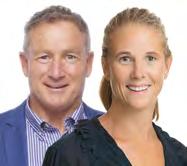
BY ROGER BROCKELSBY & LUCY HAMMOND
• We qualify prospective purchasers prior to releasing any information.
• Through knowledge of the relevant legislation, we reduce your risk of liability that can arise from unsubstantiated claims.
When advertising centres for sale, we ensure that the content of the advertisement doesn’t identify the centre. This is not always the case in the industry.
A centre recently advertised
on Trademe took five minutes to identify. Why upset your parents and staff and provide your competitors with a significant advantage?
Before the advent of online advertising, there was a certain amount of rigmarole to go through before making an inquiry about a business. Now people can just press a button and believe me, they do!
Childcare is an attractive sector for a lot of people, and we get inquiry from the knowledgeable to the frivolous and curious.
It’s time-consuming and sometimes frustrating – a lot of effort can go into people who have very little likelihood of ever buying your centre. As well as being a distraction, a lack of process in responding to inquiries can also cause issues around confidentiality.
Another issue that private sellers have to contend with is deal-

ing with the liability that arises with making any unsubstantiated claims about the centre.
Examples:
“Licence can be increased” –are you certain of that?
“Stable staff” – when you are aware two of them are leaving.
“I work one day per week in the centre” – you didn’t mention the other two days doing admin and wages from home!
A purchaser could argue that their decision to purchase was based on unsubstantiated or erroneous claims and seek redress; using an experienced broker who is aware of the legislation in this area can reduce that risk.
Buyers often feel much more confident when dealing through a business broker. They are aware that brokers are governed by a strict code of conduct and are lia-
In today’s dynamic corporate landscape, workplace wellbeing has emerged as a critical area of focus. Corporate wellness programs have existed since the late 1800s and have undergone significant changes in recent times. What was once considered a “nice-to-have” perk has now evolved into a “must-have” benefit for employers looking to attract and retain top talent.
Although corporate wellness programs can effectively improve employee health, they should not be solely relied upon. Organisations can have all the innovative and trendy benefits on offer, but it is key they take a deep dive into the wellbeing of their people and address the root cause of health issues in their workplace. This article explores the prevention of stress and burnout.
There are several statistics that allude to the effect stress has on workplace wellness.
• Create a supportive workplace where staff feel it is okay to speak up, without the fear of being perceived as unable to cope or perform.
• Talk to your staff openly and be flexible about how you can support them best, e.g. changes in duties, offering flexible hours, opportunities for leave etc.
• Educate staff on ways to approach stress – looking after your wellbeing, identifying stressors and finding solutions that help resolve the causes of stress.
• If you are a manager, it’s important to understand the impact of stress not only on yourself, but also the trickle-down effect it creates on your team. Seeking support
the ones that are no longer working.
Sustained, or high levels of work-related stress can lead to burnout. People who are burnt out often feel negative or cynical and are unable to perform to their best.
• Keep your workload and capacity in balance, e.g. planning your work, delegating tasks, and saying no when you have
over your environment.
• Investing time and energy in strengthening the bonds you share with your team and creating a sense of community is essential to feeling supported.
• After delivering something highly demanding, try switching to a less complex task.

Swapping between tasks of varying difficulty can be an excellent way to regain balance and give yourself a break. Mental breaks – we sometimes feel unable to stop, but taking time out for yourself is crucial to your wellbeing and will ultimately benefit your performance.
Physical breaks – stress and tension take their toll. Recognising times when you are most stressed or anxious can help. Mindfulness techniques can be helpful to reset and regain focus.
ble for severe penalties if these are breached; this can give them the confidence to proceed to an agreement and subsequent sale.
Finally, when it comes down to agreeing on a contract and doing due diligence, there are a number of things that can derail an agreement.
Negotiating contracts and due diligence can be stressful for both buyer and seller and having an experienced broker mediating can often take the heat out of potentially difficult situations.
Lucy Hammond and Roger Brockelbsy are Business Brokers at LINK Business Brokers. They can be contacted at Lucy Hammond – lucy.hammond@ linkbusiness.co.nz – 021 0242 2978 Roger Brockelsby – roger.brockelsby@ linkbusiness.co.nz – 027 919 5478

HUMAN RESOURCES
BY KELLIE HAMLETT
Businesses are increasingly recognising the importance of employee wellness and embedding it firmly within the culture of the business rather than viewing as a tick box exercise.
Employers who have shifted their focus to the core health issues of their workforce, show genuine care and understanding as to the importance of a healthy workforce as a key basis to employment.
By nurturing these aspects, organisations can not only enhance employee satisfaction but also boost productivity, foster a positive workplace culture, and retain top talent.
Talent ID are Recruitment Specialists and can support you through your recruitment process. Please feel free to talk to us about this by calling 07 349 1081 or emailing kellie@talentid.co.nz
In a new study, the Graeme Dingle Foundation has found its programmes to have a staggering $10.50 return for every dollar invested.
The study, undertaken by leading NZ economic consultancy firm Infometrics, is a tool which quantifies the social and financial benefits of the charity’s suite of programmes using economic calculations which represent both value and cost to society.
With a 30-year history nationwide, the Foundation’s programmes have long made an impact on youth, enhancing wellbeing, engagement, and commitment to society through increased aspirations, positive trajectories, and pipelines to the workforce, ultimately benefiting our country’s economy long-term.
Graeme Dingle Foundation CEO Jo Malcolm-Black says “Traditionally, measuring the economic benefit of our programmes has been difficult, as programme outcomes can span a lifetime for participants. However, understanding our impact through the support of Infometrics means that we can identify the true economic benefits and contributions they make to society and show just how critical this work is for our country longterm. “
The results, derived from the link between education and earnings plus a productivity spillover, capture the different ways that the presence of a better educated population can improve national wellbeing.
Graeme Dingle Foundation Western Bay of Plenty’s Regional Manager, Dan Allen-Gordon, said the results will help the foundation to identify a financial return for their generous partners and supporters throughout the Western Bay of Plenty.
“We have many loyal supporters that have seen our young people share their amazing stories and the outstanding results in their lives. This latest Infometrics research will give them confidence that Graeme Dingle Foundation programmes are one of the best investments we can make for Aotearoa,” said Allen-Gordon.
No two investors will think exactly the same, and that’s even more true when those investors are at different life stages. As our personal circumstances change throughout our lives so should our approach to investing. Throughout your life your risk profile and asset allocation will change, so let’s look at how someone might approach investing, depending on their life stage.
If you’re in the early stages of your career or working life, it’s likely your financial priorities are reflective of building a nest egg of funds over time for the future. Your investment horizon is long and you may have limited savings to start building the foundations.
A younger investor will generally have a higher tolerance to risk when compared to older investors as they have time to ride out market volatility. The asset allocation in their portfolio could lean towards a larger allocation to property and equities (growth assets), which historically offer higher returns but see higher levels of volatility.
At this stage of investing, diversifying across asset classes and industries helps spread risk. While growth assets may dominate, a smaller portion of an investor’s portfolio may be allocated to bonds (income assets) and alternative investments.
In this stage of life, investors can use the time that’s on their side to take advantage of compounding, or dollar cost averaging where they invest a fixed amount regularly. They can do
this by contributing to retirement funds or other savings vehicles. During this phase it’s beneficial to contribute to these funds aggressively.
As you move into your mid-working life your financial goals shift and financial responsibilities increase. Priorities such as mortgages and family costs come into the picture and many investors have a general desire for greater financial stability.
Now is the time many investors choose to review and adjust the asset allocation in their portfolios to achieve a better balance between growth and protection of capital.
As financial complexity grows at this stage of life, seeking professional financial advice while engaging and executing a financial plan becomes more beneficial.
There may be some benefit from tax-efficient strategies to maximise returns while minimising tax liability. Tax efficient investment strategies may include the use of PIE funds which may be included if the individual has a higher marginal tax rate.



Ownership structures such as trusts could also be considered as larger assets are accumulated within a household.
Now is the time to set specific retirement goals with a plan to track progress towards these goals in the years ahead.
As retirement approaches, people’s focus often shifts from accumulating wealth to keeping what’s saved at this point and making it last throughout retirement.
To assist with this stage in life, asset allocation should be reviewed and adjusted to fit in with your specific retirement goals. This may lead to a more conservative asset allocation which will be set based on return expectations to achieve retirement goals.
At this stage, a common investment strategy is to generate income in retirement and many choose to work with an adviser to
help guide their investments into the next stage of life.
Whether an investor or not, estate planning also becomes a vital consideration.
Your approach to investing is never going to stay the same throughout your life, so reviewing it regularly will set your up for success in whichever stage of life you are at.
Recognising changes in age and stage of life while adjusting asset allocation is crucial for long-term financial success, as is having the discipline to revisit and adjust your investment strategy to adapt to ever-changing circumstances and market conditions.
Whilst your stage of life may determine your general approach to investing, each individual has a different risk tolerance and their own circumstances. To successfully navigate this journey, it’s helpful to seek guidance from a financial adviser who can personalise advice and help tailor an investment portfolio to align with specific life milestones and objectives as they change.

The Government’s planned fast-track process for resource consents has the potential to spark greater market activity and innovation in the commercial property sector, says Bayleys.
In early March, as part of its 100-day action plan, the Government announced its Fast-track Approvals Bill, a one-stop-shop for faster consenting that would see eligible projects of regional or national significance referred by ministers to an expert panel. That panel would have a maximum six months to make recommendations, before referring back to the relevant minister, who would make the final decision on whether to approve or not.
Bayleys national director customer engagement & advisory
Paula Bennett says the Fast-track Approvals Bill, currently before select committee, has the potential to unlock projects currently stalled by bureaucracy and red tape.
“There are significant infrastructure and commercial projects that are shovel ready and much needed to spark growth in the economy and improve the country’s productivity.”
Bennett says the bill is recognition of the issues impeding the
country’s economic development.
“In many cases the system is broken, extreme delays in consenting means that much-needed infrastructure and housing are not going ahead.
“There is also the very real risk that if we don’t get large-scale projects on the go, we will lose experienced tradespeople, who we are already short of, because they will look overseas for opportunities.
“Bayleys is privileged to work with a wide range of outstanding partners who care about people
developers and operators, she says.
“A more timely and streamlined path through the resource consenting process should help make the costs of large projects more predictable and manageable, reducing risk.”
Projects would become eligible for fast-tracking either through referral by Infrastructure Minister Chris Bishop, Regional Development Minister Shane Jones and Transport Minister Simeon Brown, or by being listed in Sched-
> In many cases the system is broken, extreme delays in consenting means that much-needed infrastructure and housing are not going ahead.”
and the environment of this country. They want to build something they can be proud of,” she says.
“It makes sense to have a pipeline of projects the ministers can fasttrack to ensure that we keep our country moving.”
Freeing up large projects from the time-consuming and expensive resource consent process should help create an environment more conducive to market activity and innovation from commercial, industrial and logistical
ule 2A of the Bill.
Schedule 2A will contain projects considered consent-ready which will automatically be referred to the fast-track process once the bill passes into law.
A Schedule 2B list of projects will include those of regional or national significance which the government is keen to progress, but which are not yet “consent-ready”.
A fast-track advisory group will be established to advise on projects to include in schedules 2A
and 2B. Once the bill is law, other projects can also be referred to the ministers to be considered for fasttracked consenting.
RMA Reform Minister Chris Bishop says “the one-stop-shop” nature of the bill is a vital part of the proposed fast-tracking process.
An applicant will apply for their project to be fast tracked and ministers, after confirming the project’s regional or national significance, will refer the project to the expert panel.
“The panel will then refer the project back to joint ministers to either approve the project with conditions or decline it. The ministers can also refer the project back to the panel if they consider the conditions placed on the project by the panel to be too onerous,” Bishop said.
The bill will remove the red tape that has been holding back New Zealand’s commercial property sector, he says. “The bill provides a faster, more efficient process to get approvals for projects with significant regional or national benefits, including mixed-use, commercial and residential developments.
“Streamlining multiple approval processes into a one-
stop shop consenting regime will deliver nationally and regionally significant infrastructure, increase the supply of housing and address housing needs.”
Leonie Freeman, chief executive of Property Council New Zealand, voices concerns over New Zealand’s cumbersome consenting process, citing delays and rigidity that stifle innovation. She emphasises the long-standing issue of sluggish resource consent procedures, which not only slow down projects but also inflate costs unnecessarily. Freeman applauds the government’s efforts to tackle these challenges, especially in light of the pressing need for housing and essential infrastructure.
“Less than 18 months ago, our industry grappled with severe supply shortages. The inability to navigate the resource consent process smoothly and adapt to market demands has posed significant challenges. Our members are optimistic that the forthcoming legislation will pave the way for increased development across the sector, spanning residential, commercial, and industrial projects,” Freeman says.
To read the full article, go to bayleys.co.nz/totalproperty/ articles/consents-in-the-fast-lane

The people have spoken, with Pāpāmoa café Pearl Kitchen winning a top award during the Flavours of Plenty Festival for the second year in a row.
Pearl Kitchen’s smoked fish pie and beer entry in the Plates of Plenty Challenge earned the most diner votes to win the annual People’s Choice Award and a $500 voucher from Southern Hospitality.
Pearl Kitchen manager Kirsty Moore says she appreciates everyone who voted for the dish.
“It’s great to be recognised by all of our customers, as well as our peers. It’s an amazing festival to be part of.”
A panel of judges from the hospitality faculty at Toi Ohomai Institute of Technology noted the entry was a “standout” dish which showcased Pearl Kitchen’s ability to blend tradition with innovation.
“The perfect seasoning, memorable taste, well-balanced blue cheese and potato foam, and the unique smoked fish gravy were highlights that spoke to the culinary expertise at play. Additionally, the effective promotion and the visible enthusiasm of the team enhanced the dining experience, creating a vibrant atmosphere around the dish,” a judge said.
The expert panel selected a passionfruit parfait and kiwifruit curd dish by But First Dessert as their pick for the Judge’s Choice Award and a $1000 prizewinner voucher from Southern Hospitality.
The dish judge noted it was: “A great fusion of flavours, where sweetness was perfectly complemented by the citrusy tang of the passionfruit and a refined hint of gin. It was a party on my taste buds, a symphony of flavours. I really enjoyed every bite of it.”

But First Dessert owner Adele Hall says she “loved” the range of ingredients that were in the Challenge box.
“The ones that we chose for desserts, they were so different in flavour but when you had them all together they really complemented each other,” she says.
“It’s nice to be able to celebrate our chef’s creativity and using local produce, and just giving people something different to try that they wouldn’t make at home and wouldn’t usually have. That’s what we’re all about here and that’s what we love doing, so to be awarded for that is awesome.”
The two winning eateries beat 18 other entrants during the 11-day Plates of Plenty Challenge. Each entrant was tasked with choosing at least three items


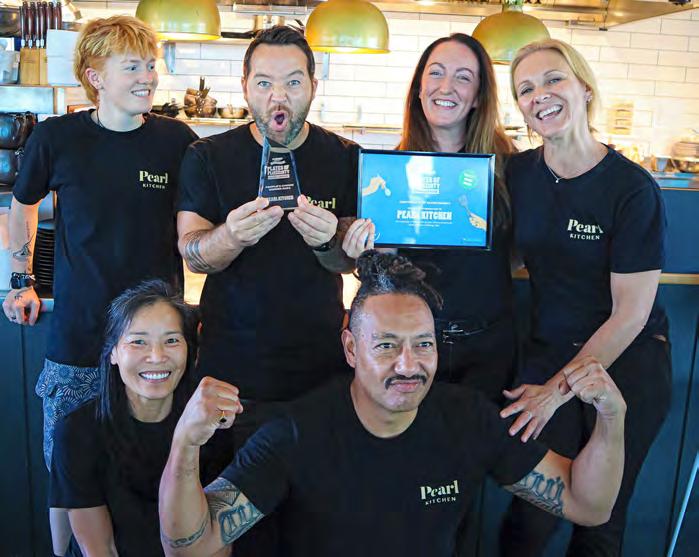
SomeofPearlKitchen’swinningteam(fromleft)ParisHarding,TranYenTrang,DavidStuart, UilisiLangi(Will),KirstyMooreandLaurieDaubney.Top:ThePeople’sChoiceAwardsmokedfish pieandbeerdish.
from a box of nine locally sourced ingredients to create a bespoke dish during the Flavours of Plenty Festival, which is a key annual project for Tourism Bay of Plenty.
The ingredients box featured blue cheese, microgreens, Earl Grey tea, curried onion chutney, golden kiwifruit and kiwiberries, passionfruit pulp, smoked kahawai, low-carb ale, and lemonade-infused gin.
“The Plates of Plenty Challenge inspires our region’s chefs to get creative,
Back when Twitter was Twitter, but after Prince was Prince, I remember tweeting from outside a petrol station in Hamilton: Y R the toilets wth a whitebrd showng when they were lst cleaned & by who look and stink 10X worse than othz?
Rhetorical question, but my harrowing experience focused me at the time on that observation.
That was back in 2019. I’m pleased(sic) to report things haven’t changed. The public bathroom (that’s means toilet, but the fast-food chains insist on an Americanisation – it’s just cuddlier I think) at a central Auckland fast-food chain I visited recently took my top-spot in both the ‘worst smelling WC’ and ‘grubbiest windowless room’ categories. I won’t name the outlet; suffice to say you’d recognise their livery immediately if I described the colour scheme.
Graffiti in toilets – I can dig it – it has always existed. And should you end up delayed on a visit, you at least have something colourful to read.
Not that such reading is always fun. I
recall a bus ride on a social outing with an aunty who was a ‘proof-reader’ (that used to be a thing before the internet). She considered the graffiti on the back of the bus seats at the time as something of a commentary on the state of our education system. A disgrace she proclaimed. She lamented at the time that Yous’ is not a valid plural, and the placement of the apostrophe on Timothys’ Mums a **** could be quite derogatory toward the mothers of Timothys who had never worked in the sex industry; Yes, grammar and punctuation are still important.
But I digress. My point is in neither instance – the petrol station (Am. Gas station) or the burger joint – did the ‘BATHROOM WAS LAST SERVICED’ whiteboard work. In both cases the whiteboard had not been updated in the current year. Effectiveness rating of cleaning whiteboard: ZERO.
We all encounter instances in our business and personal lives of well-intentioned systems being implemented but the accompanying rules of engage-
ment not being enforced. A lesson for managers: follow-up on the effectiveness of systems you put in place, and if they’re not working, do something about it.
Why am I making a big deal about smelly loos? Because if you’re running a business, be aware, it’s often the little things that count when it comes to customers’ repeat business.
In my business life I deal with a wide cross-section of businesses and businesspeople, from gritty trades and industrial environments to poncy corporate engagements. Sometimes it’s a suit and tie, other times gumboots and overalls.
Numerous factors effect perceptions of a business when it comes to good old fashioned face-to-face visits. For example, the state of their premises, the availability of visitor parking, ease of access (finding the door and getting inside), and the friendliness and helpfulness of the staff you meet – all the things that happen before we’ve even talked business.
Why are these things important? Because all competitive businesses should want customers to feel comfort-
using an eclectic selection of produce that they may not have used before to make their unique festival dish shine. It’s a winwin for diners’ tastebuds and for the vital market exposure that participating food and beverage producers get during the festival too,” Tourism Bay of Plenty general manager Oscar Nathan says.
Diners who voted for the People’s Choice Award entered the draw to win one of three $100 vouchers to spend at a participating eatery of their choice.

ALAN NEBEN
able and enjoy dealing with them, to know they run a tight ship, but they care. On that very note, maybe some air freshener, a litter bin and some clean wipes wouldn’t be a bad investment when you’re wondering why the cleaning whiteboard doesn’t seem to be working out. I might only be getting gas or a burger, but surely you’d like me to feel good about coming back again soon?
Alan Neben is a Mount Maunganui local and experienced New Zealand publisher. His columns provide a light-hearted perspective on social changes effecting New Zealanders.
In a recent announcement, Quayside Holdings, a Council Controlled Organisation (CCTO), introduced Mark Wynne as its new Board Chair. This appointment affirms Quayside’s commitment to building a sustainable fund that provides intergenerational wealth for the Bay of Plenty region, in balance with providing a regular distribution to its shareholder, the Bay of Plenty Regional Council. Whilst a delicate balance between the two objectives, the driver to provide enduring prosperity for the region remains true.
At the helm
Mark brings a wealth of primary industry and commercial sector experience to the Quayside Board, with a career spanning over two decades, encompassing dairy, manufacturing, agri-nutrients, and personal care sectors.
His extensive global roles in leadership and operations have been marked by a strong track record of delivering sustained profitable growth in challenging conditions.
He recently concluded a nine-year tenure as CEO of Ballance Agri-Nutrients, New Zealand’s leading fertiliser company, where he spearheaded purpose and growth strategy development, manufacturing upgrades, innovation pipelines, capital project management, and digital transformation initiatives. Before this, he was Managing Director ANZ and South Asia Regional President for Kimberly-Clark, a USA-listed company.
With more than 20 years in the dairy industry, including leadership roles at Fonterra, Mark has amassed local and global experience, contributing to his roles on various Boards such as the Fertiliser Association of New Zealand, Alliance Group and Manuka Health amongst others.
Joining the Board concurrently in October 2023, are Independent Directors, David Fear and Fraser Whineray. David’s 40-year depth of expertise in investment and financial markets, where he held roles across Institutional Equities, Wealth Management, and Investment Banking divisions, underscores his


commercial acumen. In complement, Fraser’s experience as the Chief Executive of NZX and ASX-listed Mercury, COO of Fonterra Co-operative, Associate Director at First NZ Capital, and governance roles at Tilt Renewables, Kotahi, Opus International Consultants, Carter Holt Harvey and NZ Dairy Board to name a few, provide a huge asset to our Board.
The vision for Quayside is deeply rooted in its core values of responsible financial stewardship and partnership.
Alongside this, Mark and the rest of Quayside’s experienced Board, understand the importance of balancing commercial interests with environmental and social considerations, ensuring that Quayside investments yield financial returns and provide regional benefit
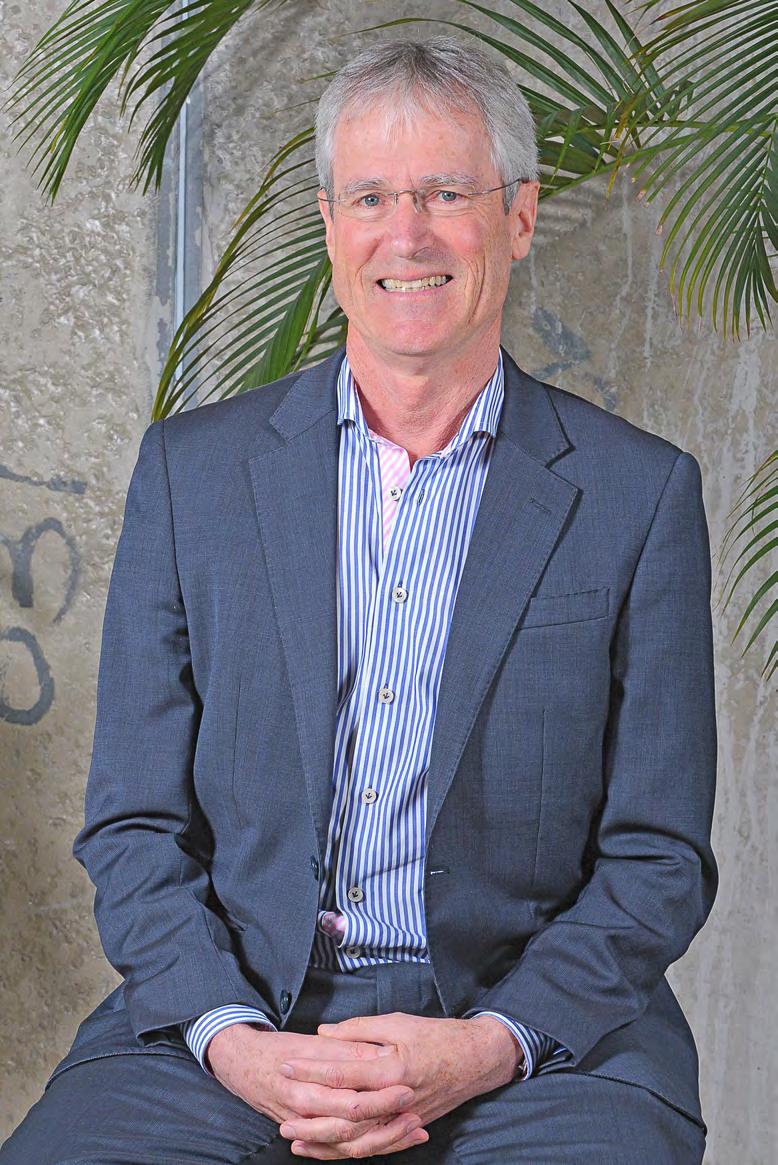
MarkWynne,thenewBoard
through the provision of an annual distribution to its shareholder, Bay of Plenty Regional Council.
With a clear line of sight, to intergenerational prosperity, Quayside will continue to pursue investment opportunities that align with its risk appetite and strategic objectives, while also prioritising diversification to mitigate risk and enhance resilience. A key focus is the development of the Rangiuru Business Park, a project that holds immense potential for economic growth and job creation in the region.
“We’re excited to see Stage 1a titles coming to market next year, meeting the demand for quality industrial land in a
growth corridor” says Mark. He also recognises the importance of responsible investment practices in today’s rapidly changing world. Quayside is committed to growing its maturity and upholding environmental, social, and governance (ESG) principles in its investment decisions, producing its first climate-related disclosures this year.
Mark Wynne’s appointment as Board Chair marks an exciting new chapter for Quayside Holdings. With his leadership and vision, Quayside will continue to chart a course towards sustainable growth, community prosperity, and responsible stewardship of public funds.
Remaining steadfast in its commitment to creating a brighter future for the Bay of Plenty region and its residents.



ZERO%FINANCEOFFER*
ZEROCOSTFORAN$8,000TRAVELORFURNITUREVOUCHER*
ZEROCOSTONTHEFIRST10,000KMRUCS*
ZEROCOSTONTHEFAMILYLIFESTYLEPACKAGE*

*T&Cs-FamilyLifestylePackageZerocostwhichincludesuseofaRX350HybridLimited6timesperyearforextendedfamilytripsforthetermofwarranty.FinanceT&C’sRRPof$151,600,ORC of$1550.Min$25,000deposit,36monthterm.FlexibleFinanceplansavailableincludingHirePurchase,FinanceLease,GuaranteedFutureValueCertificateFinance.$9.20PPSRProcessing feeapplies.LexusFinanceNormalLendingcriteriaappliestofinanceapplicants.$8,000TravelVoucher(HouseofTravel)orFurnitureVoucher(Greenslades).Zerocostonfirst10,000kmRUCs frompurchase.Tradein’sacceptable.